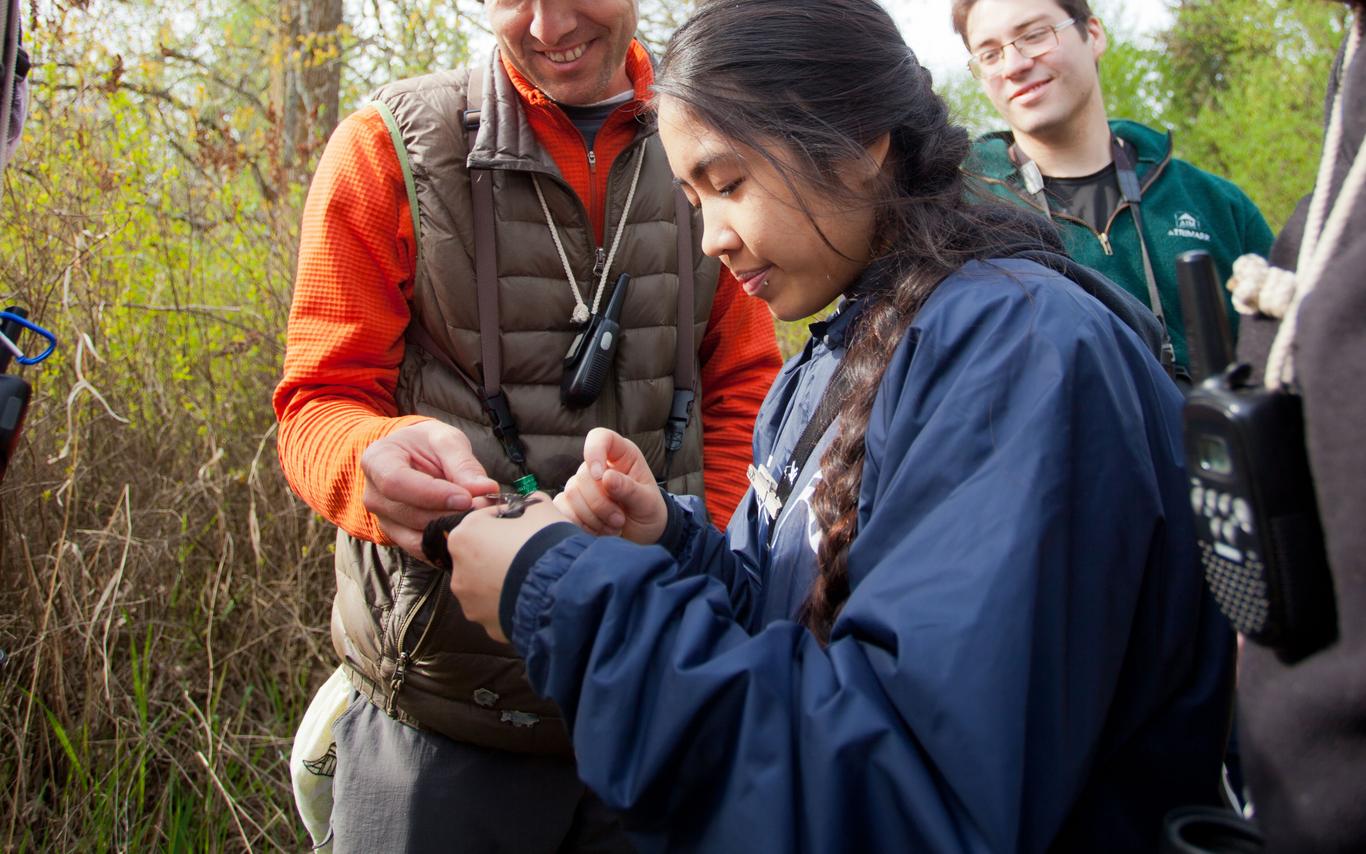The Undergraduate Student Research Award (USRA) is available through significant funding provided by the Natural Science and Engineering Research Council of Canada (NSERC). Starting in 2023-2024, the Social Sciences and Humanities Research Council of Canada (SSHRC) and the Canadian Institutes of Health (CIHR) also sponsor USRAs for Black scholars.
In short, students receive financial support to work on a faculty project over the summer. It is basically a great summer job as a research assistant. These awards are competitive, and students are required to fill out an application to be considered.
Please keep in mind that, if awarded an Undergraduate Student Research Award, you will most likely be working on a faculty-led project. You will get to be part of a larger research program and take on a small part of it.
This page outlines everything you need to know about the award at VIU. Further questions can be directed to Vanessa Moraes, VIU's Student Research Engagement Coordinator (Vanessa.Moraes@viu.ca).
USRA workshop
January 13 at 11:30 am in B305 | R440
VIU Internal Deadline: January 27, 2026.
Students:
- Must have a GPA average of at least 2.67 over the last two years
- Must have at least 2 semesters completed at the time of application (ideally you have completed 2 years in the area your research project is based in when you start your award in May)
- Must be enrolled in their degree program at the time of application
- Must have been registered in classes in one of the two semesters directly preceding their award tenure (both are fine as well)
- Must be a Canadian citizen or permanent resident
- May hold only one USRA per fiscal year (April 1 to March 31)
- May hold a maximum of three USRAs throughout your undergraduate university career
- Must not have started a program of graduate studies in the natural sciences or engineering at any time
- Must be engaged on a full-time basis in research and development activities during the tenure of the award - NSERC's eligibility criteria for students and fellows
Contact your department for more information about faculty members who can supervise USRAs.
The awards are similar to a summer job. You will receive at least minimum wage, paid out every two weeks for 16 weeks worth of time. You will need to fill out tax forms and income tax will be deducted. Payments are made via direct deposit into your bank account.
The award is to be held in a full time capacity over the summer (May-August). Full time is considered 35 hours/week at VIU, but we understand that lab/field/summer work does not always follow a regular schedule and so the supervisor will determine exact hours. However, the average work week over the 16 week award period needs to be approximately 35 hours.
Science and Technology Projects
NSERC assigns a certain number of awards to the universities across Canada. VIU has been awarded seven for summer 2026. One additional award has been allocated for a student who identifies as Black.
In addition to this quota, we can support additional eligible applications from Indigenous students. If you are an interested student who identifies as Indigenous, you are highly encouraged to take advantage of this opportunity!
Social Sciences and Humanities Projects
SSHRC assigns a certain number of awards to the universities across Canada. VIU has been awarded one for summer 2026 for a student who identifies as Black.
Health Science Projects
CIHR assigns a certain number of awards to the universities across Canada. VIU has been awarded one for summer 2026 for a student who identifies as Black.
Applications will be accepted via the ROMEO system, not the online NSERC system. Please register in Romeo using your student email (my.viu.ca). Refer to IT Service Desk if you have any issues accessing your student email account.
- USRA workshop: January 13 @ 11:30 am in B305|R440
- Only those students who are awarded an award will need to fill out the online NSERC application.
- Applications include:
- All necessary sections on the Romeo application
- Transcripts (if awarded you will need to provide official transcripts to NSERC)
- Reference Assessment Form completed by an academic reference other than your proposed supervisor (hyperlink for the form can be found in the application under the Reference Assessment Form tab)
Supervisors and their research
The space is made available to those interested in recruiting students. More info coming soon.
